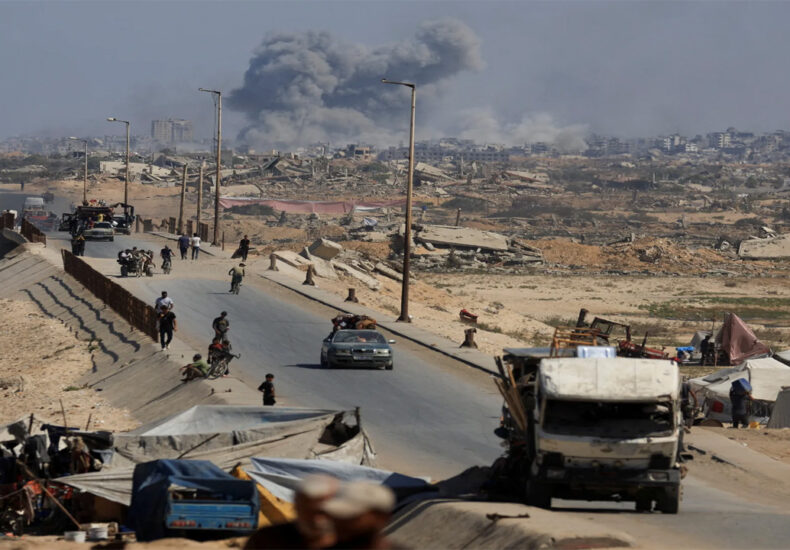
Hamas Rejects Trump’s Disarmament Proposal in Gaza Ceasefire Plan
Fundacion Rapala – The Palestinian resistance group Hamas has rejected the disarmament clause in U.S. President Donald Trump’s ceasefire proposal for Gaza. Senior Hamas official Taher Al Nounou stated on Monday (October 6) that the organization “is not part of the current American negotiation plan.”
He explained that the release of Israeli captives depends on ending the war and the full withdrawal of Israeli forces from Gaza. “The weapons of resistance are tied to the creation of a Palestinian state,” Al Nounou said, as reported by Middle East Monitor. He emphasized that Hamas will not disarm while Israel continues its military occupation and aggression.
Hamas Reaffirms Its Focus on Prisoner Exchange
Al Nounou also reiterated Hamas’s firm stance on the prisoner exchange deal with Israel. “We are serious about releasing prisoners as part of a comprehensive agreement that ends this war. Without it, the conflict could drag on for years,” he said.
Furthermore, Hamas expressed support for Egypt’s proposal to form an independent administration for Gaza. Al Nounou added that the group would review the U.S. plan only within a framework that protects Palestinian rights and interests. His statement suggests Hamas remains open to talks but prioritizes national sovereignty and independence.
Internal Debate Over Trump’s Permanent Ceasefire Plan
Although Hamas initially accepted Trump’s permanent ceasefire proposal in Gaza, several clauses — especially disarmament — have sparked disagreement within the group. Many members believe giving up weapons would weaken their ability to defend Gaza.
Political observers note that Hamas is trying to balance international diplomacy with its resistance ideology. The group wants to show willingness to negotiate while avoiding any decision that could undermine its strength or credibility among supporters.
Hamas and Israel Prepare for New Round of Talks
Hamas’s chief negotiator Khalil Al Hayya traveled to Egypt on Monday to resume indirect talks with Israel. The discussions will focus on a hostage exchange and ceasefire implementation. According to AFP, the meeting aims to create a practical framework for ending the war in Gaza.
An Israeli delegation also arrived in Sharm El-Sheikh, confirmed by the office of Prime Minister Benjamin Netanyahu. This marks one of the most significant diplomatic efforts in months, raising hopes for progress after weeks of tension.
Read This : Updated Cookie Run Kingdom Redeem Codes for October 2025 — Don’t Miss Out on Free Rewards!
Khalil Al Hayya Survives Attack and Reappears in Media
This is Al Hayya’s first public involvement since Israel targeted him and other senior Hamas figures in an airstrike in Doha, Qatar, last month. Rumors claimed he was killed, but he appeared alive in a pre-recorded broadcast on Qatari television Sunday night.
His return has boosted morale among Hamas supporters. It also demonstrates that the group’s leadership remains active despite Israel’s repeated attempts to eliminate them. Analysts believe Al Hayya’s presence in Egypt could accelerate the negotiation process.
Broader Implications of Hamas’s Refusal
Hamas’s rejection of Trump’s disarmament clause shows its firm commitment to maintaining military strength. The group believes disarmament would leave Gaza defenseless against future attacks. At the same time, its willingness to engage with Egypt and the U.S. indicates a more pragmatic political approach.
This dual strategy — combining resistance with diplomacy — highlights Hamas’s evolving role in regional politics. The talks in Sharm El-Sheikh could determine whether Gaza moves closer to long-term peace or faces another cycle of conflict.